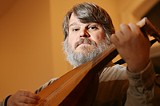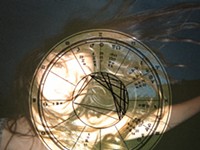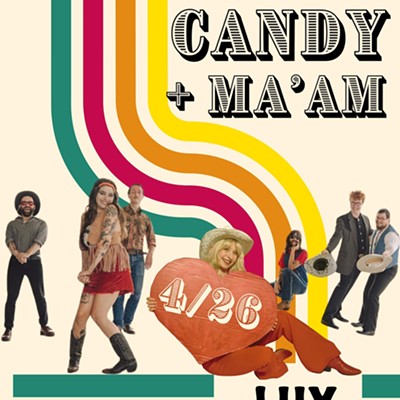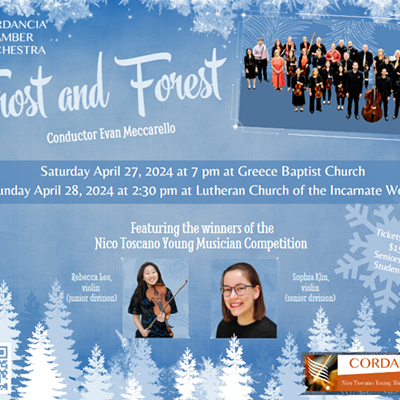[
{
"name": "500x250 Ad",
"insertPoint": "5",
"component": "15667920",
"parentWrapperClass": "",
"requiredCountToDisplay": "1"
}
]
Music
To hear Paul O'Dette tell it, the real significance of the Truce of Nice lies less in politics than in the creation of what O'Dette calls "a summit meeting of the greatest lutenists of the 16th century." Pope Paul III, King Francis I of France, and Emperor Charles V negotiated the truce in 1538. Among the Pope's entourage was the brilliant Francesco daMilano. The musical jewel in Francis' crown was Alberto Ripa (de Rippe, in France), and evidence suggests that Charles' lutenist, Luys de Narvaez, was also present. O'Dette's admiration is clear as he describes the virtuosity of these Renaissance performer/composers, and imagines the convergence of three such outstanding talents. On Sunday, January 21, you can imagine it too, as the music of daMilano, de Rippe, and de Narvaez will be brought to life by O'Dette himself, in a rare solo appearance on his home turf.
Trained at the prestigious ScholaCantorumBasiliensis, O'Dette is currently director of early music and professor of lute at the Eastman School of Music. He also serves as the artistic director of the Boston Early Music Festival, has performed the world over, and his more than 120 recordings have garnered awards too numerous to list. O'Dette has been called "the clearest case of genius ever to touch his instrument" by Toronto's Globe and Mail, and is currently nominated for a Grammy award (his second) for best solo instrumental recording for Daniel Bacheler: The Bachelar's Delight. O'Dette's achievements as soloist, ensemble player, recording artist, teacher, writer, and conductor are considerable.
Enamored as he is of the Renaissance, O'Dette's earliest musical models included Clapton and Hendrix, whose style he emulated in his own rock band on an electric guitar purchased with paper route earnings. To "get a leg up on other rock guitarists," he says, O'Dette started studying classical technique. When his teacher assigned him six Renaissance lute pieces, he liked them well enough to arrange them for his rock band. But, curious about the original sound of the music, O'Dette bought his first lute recording at age 16. It was, he says, "love at first hearing."
Asked what he would like his audience to know in advance of his concert, O'Dette grins and says "it's important for people to realize that the lute was the most important instrument in the 16th century!" Everybody played it, and everybody was interested in it, he says. Lute music has an immediate appeal in terms of its tunefulness, rhythmic vitality, clear and honest expression, and pure fun.
That said,O'Dette is careful to note that at the highest levels of artistry, Renaissance lute music is extremely demanding (he claims there are works even he doesn't play). The best performers could "write their own ticket," as patrons competed madly to lure the best talent into their employ. De Rippe, for example, was among the highest paid members of the French court, second only to the minister of defense. His fellow courtier, Leonardo da Vinci, earned one-tenth his salary. As a performer who has mastered the most difficult works, O'Dette seeks to dispel the myth that Renaissance music is somehow technically or mechanically inferior to the visual arts and architecture of the period.
Deborah Fox, founder of Rochester's Pegasus Early Music, is a former student of O'Dette's and will give a short talk before his recital Sunday. She agrees that the Renaissance repertoire has much to offer today's audiences, noting the "almost visceral connection" that arises between artist and audience when the performance setting is appropriately intimate. "People love to see the musicians having fun, surprising themselves and the audience as the creation/re-creation process unfolds," she says. Both Pegasus and Fox are devoted to locating performance venues that encourage the intimate nature of the early music experience. The atmosphere, size, and acoustics of Nazareth's Linehan Chapel, she says, are an ideal setting for daMilano, de Rippe, de Narvaez, and O'Dette.
Paul O'Dettepresents the program "Music for Pope, a King, and an Emperor" Sunday, January 21, at Linehan Chapel, NazarethCollege, 4245 East Avenue. The recital is co-sponsored by Pegasus Early Music and the Nazareth College Music Department. Pre-concert lecture at 3 p.m., concert at 4 p.m. Tickets cost $20-$55, and are available at the door, by phone (703-3990), or website (PegasusEarlyMusic.org).






